Maserati GranTurismo Trofeo first drive: beautiful brutish elegance
Maserati’s grand tourer is fast, furious and a pleasure to drive

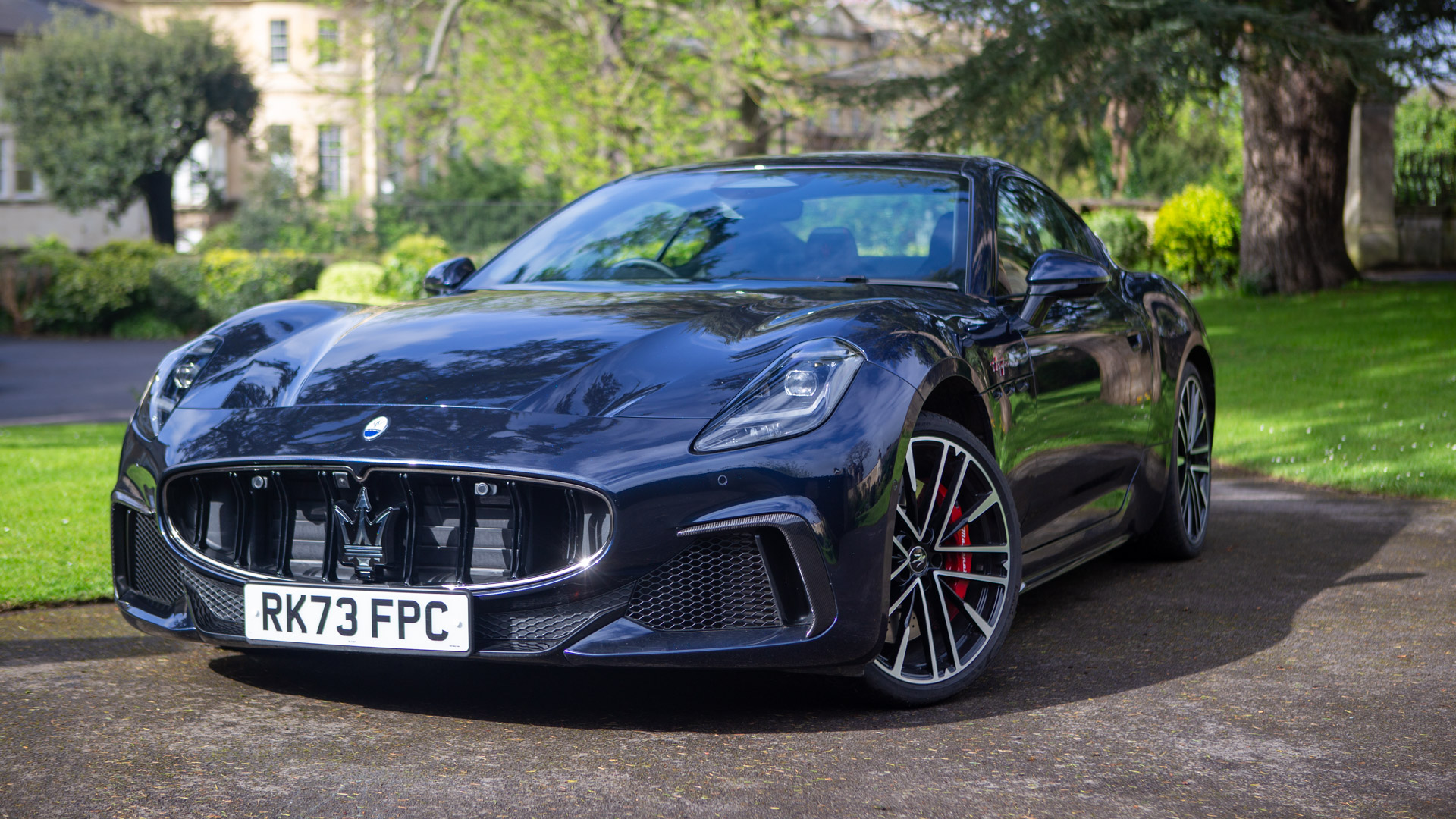
Get all the latest news, reviews, deals and buying guides on gorgeous tech, home and active products from the T3 experts
You are now subscribed
Your newsletter sign-up was successful
Lots of cars claim to be beautiful but the Maserati GranTurismo is truly exceptional. It’s not the quirky kind of good-looking or the over-engineered plastic kind, this is jaw-dropping, head-turning natural beauty. Neither loud nor obnoxious, it takes a few minutes to fully appreciate, but every time I see it parked up, I just stop and stare.
The GranTurismo is Maserati’s two-door grand tourer and has four full seats (if not huge legroom), making it suitable for long journeys with the family. It’s not the sportiest model in the range, that falls with the smaller MC20, but it still feels and drives like a sports car.
Perhaps the most exciting thing about the GranTurismo is that an all-electric model, the Folgore, is coming later this year, making it one of a very exclusive group of two-door electric sports cars. In advance of the Folgore model, I got behind the wheel of the more powerful of the two petrol models, the Trofeo, to see how it drives.
Check out our review of the all-electric Maserati Granturismo Folgore
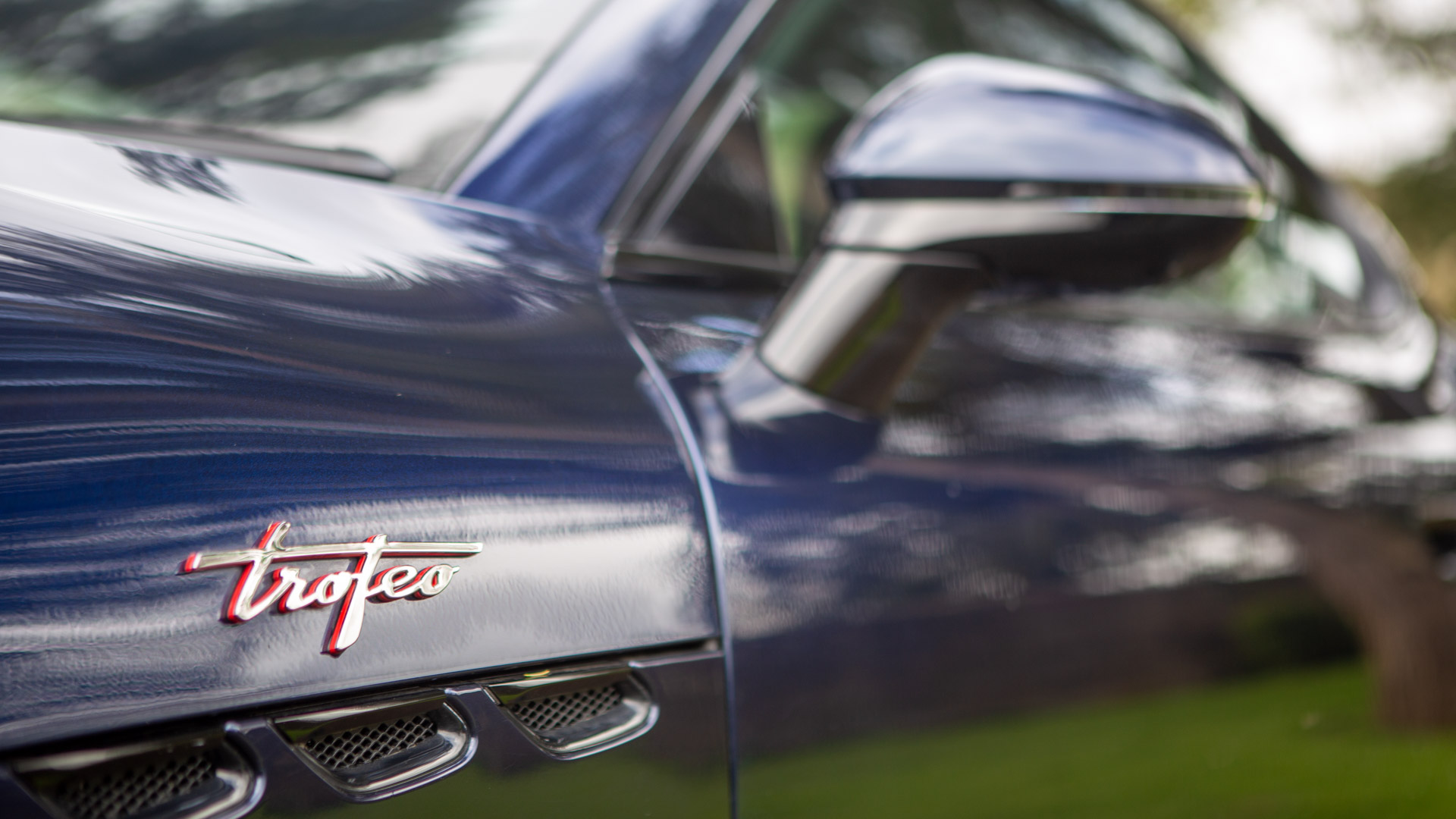
How much is the Maserati GranTurismo?
- GranTurismo Modena from £133,000 / $159,495
- GranTurismo Trofeo from £163,470 / $191,495
- GranTurismo Folgore (EV) from £179,950 / $199,690
There are three versions of the GranTurismo available: two V6 petrol-engined and one electric. The GranTurismo Modena starts from £133,000 while the GranTurismo Trofeo starts from £163,470. The all-electric GranTurismo Folgore will cost £179,950, with deliveries later this year.
The GranTurismo Trofeo model I tested features the more powerful 550hp and 3.5-second 0-62mph acceleration. This was finished in a Blu Modena metallic paint, with 20/21-inch Pegaso alloys, red-painted brake callipers, black seats with red stitching and a carbon fibre trim. It also featured the ADAS package and premium sound system, taking the total price to £172,110.
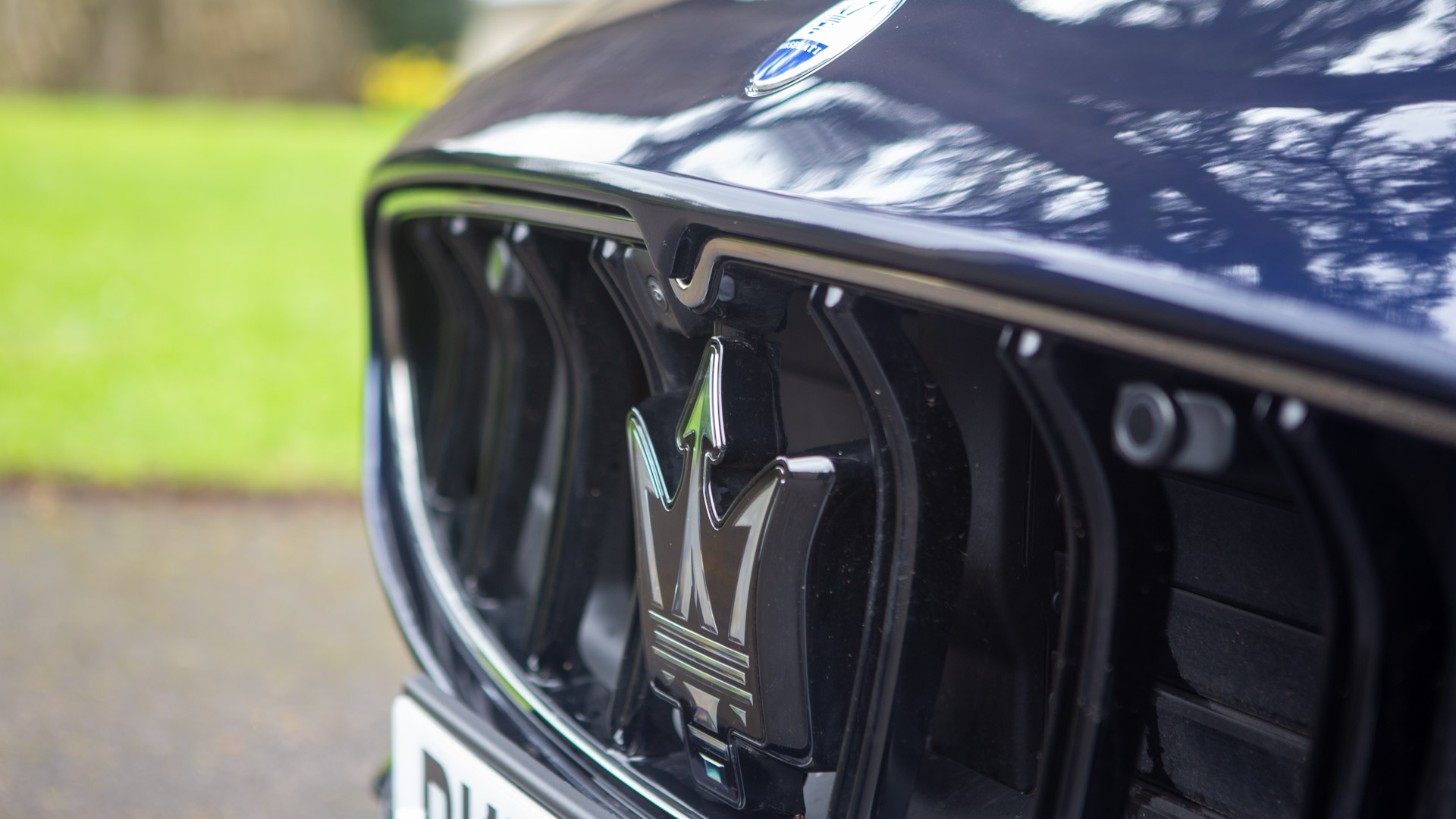
Features and design
- 20-inch alloys (front), 21-inch alloys (rear)
- 1795 kg (3957lbs) weight
- Length: 4966 mm; width: 2113 mm
The curvaceous shape of the GranTurismo starts from the very front of the car. The large oval grill sits low to the ground with just the number plate underneath it and the three-dimensional trident logo filling the centre. Otherwise, this is full of flaps that allow air to rush in and cool that huge 3.0-litre V6 behind it. Further vents and air curtains cover the front, maximising that air intake.
The headlights sit vertically, combining daylight-running LEDs with the main headlights and indicators. The huge curves extend over the bonnet and accentuate the wheel arches, which are filled with 20-inch alloys at the front and 21-inch alloys at the rear.
Get all the latest news, reviews, deals and buying guides on gorgeous tech, home and active products from the T3 experts
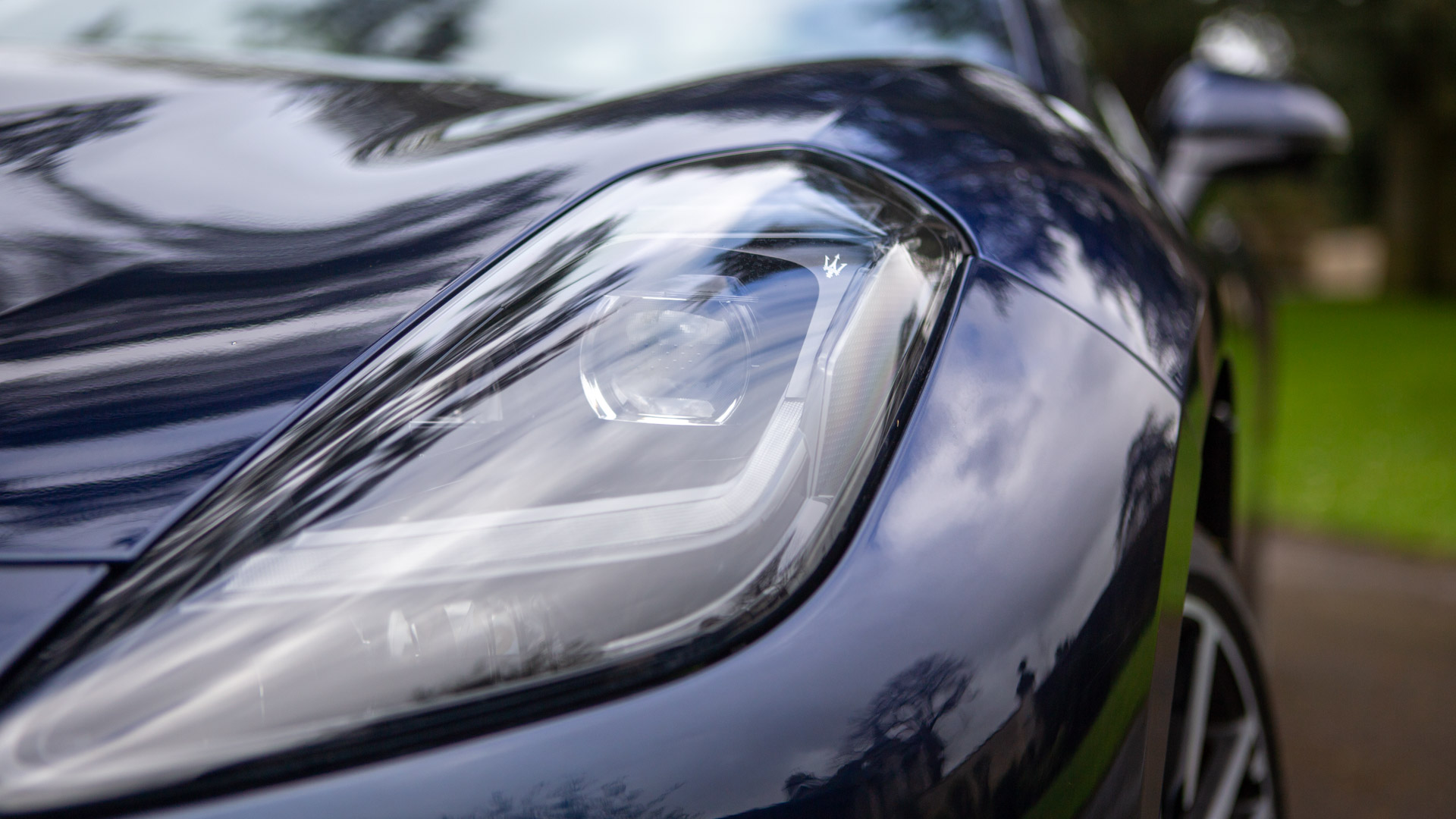
On the side, the Trofeo badging sits above three side air vents, while another Maserati trident logo sits behind the window. The rear wheel arches flare out from just behind the door, with the rear LED lights wrapping around the corners.
Side on, the single door and long bonnet make the car quite nose-heavy, accentuating that sporty demeanour. It also appears to sit very low to the ground, thanks to air springs that can raise and lower the car for different driving conditions.
The GranTurismo makes use of lightweight materials such as aluminium and magnesium to keep the weight down, though the whole thing still weighs around 1.8 tons. The electric version will weigh around 2.2 tons. That’s because, despite its sporty looks, this is still a big car at nearly 5 metres long and 2 metres wide (plus wing mirrors). Parking this in a standard UK parking bay is a squeeze and leaving it parked in a public car park is something that takes more nerve than I possess.
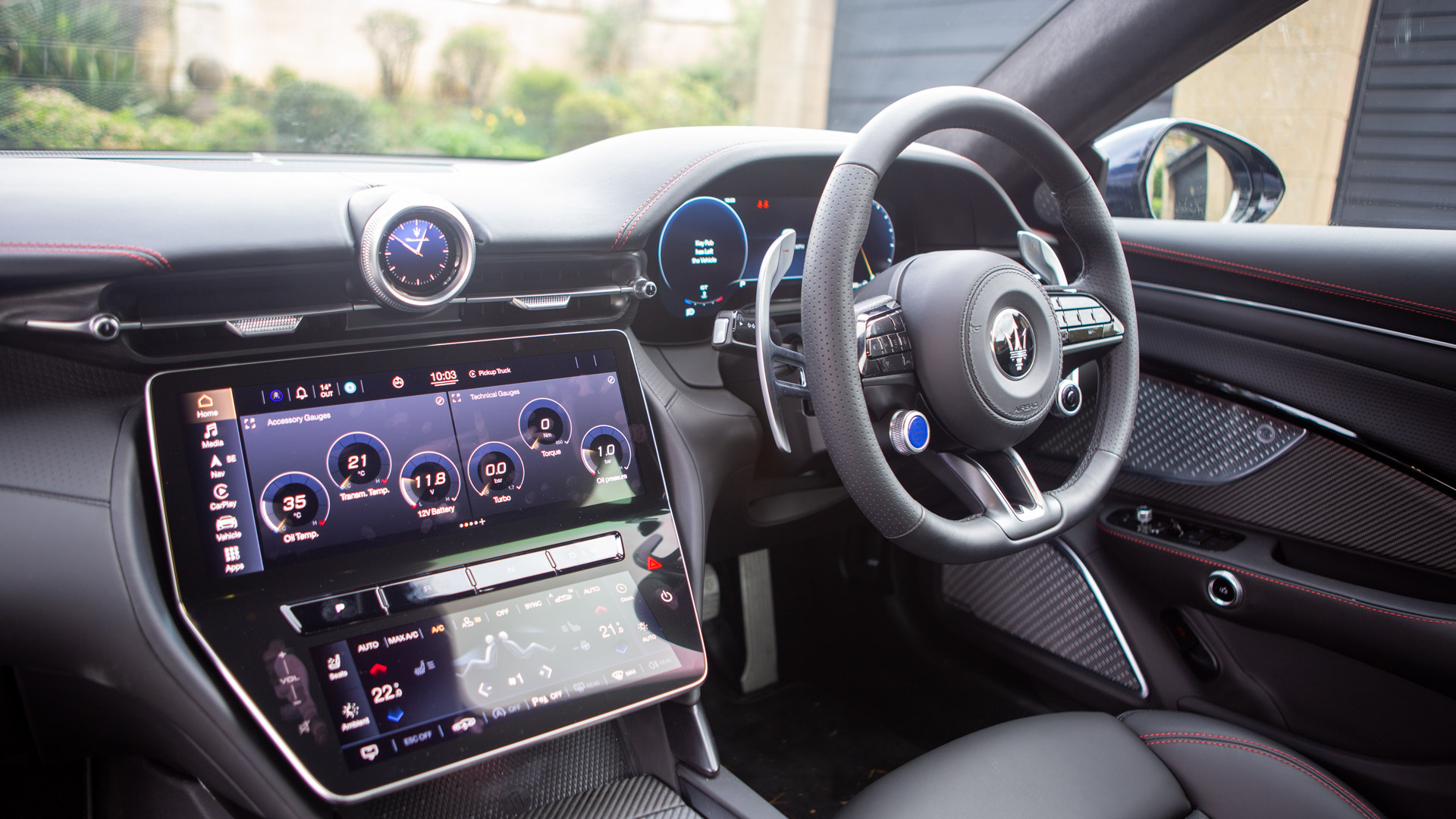
Interior and tech
- 2+2 seats
- 270 litres of luggage space
- 12.2-inch driver display
- 12.3-inch central touchscreen display + 8.8-inch display for climate
- Sonus Faber 19 speaker, 1195W 3D sound system
The advantage of this larger Grand Tourer as opposed to a two-seater sports car, is that relatively, there’s lots of room. The boot on the GranTurismo has 270 litres of space, while in the rear there are two full-size passenger seats, divided by a centre console. Getting in and out of the back is a bit tight but when the front seats fold forward they also move forward automatically to provide more leg room. And when in the back you still have room for your legs. However, if the driver is much over 6ft, it might get a little tight behind them.
The front seats, however, have bags of room. In my test car, the black leather was accented by red stitching on the dash and seats, with red tridents on all four headrests. There are also sections of carbon fibre in the doors and over the centre console. If you’re feeling lairy, you can opt for the bright red leather interior which I imagine looks great on the streets of Milan but feels a little much for here in Bath.
There are plenty of screens up front. There’s a 12.2-inch display for the driver behind the wheel, while in the centre there’s a 12.3-inch touchscreen display for the main infotainment, navigation and vehicle settings. Below that is an additional 8.8-inch touchscreen dedicated to the climate controls. You can also opt for a head-up display as part of the Tech Assistance package, but that wasn’t on my car.
The steering wheel offers further controls, with adjustments to the driver display settings on the left and cruise control/adaptive cruise control/limiter controls on the right. You also get large static paddles for manual gear changes, an ignition button and a drive mode selector on the wheel.
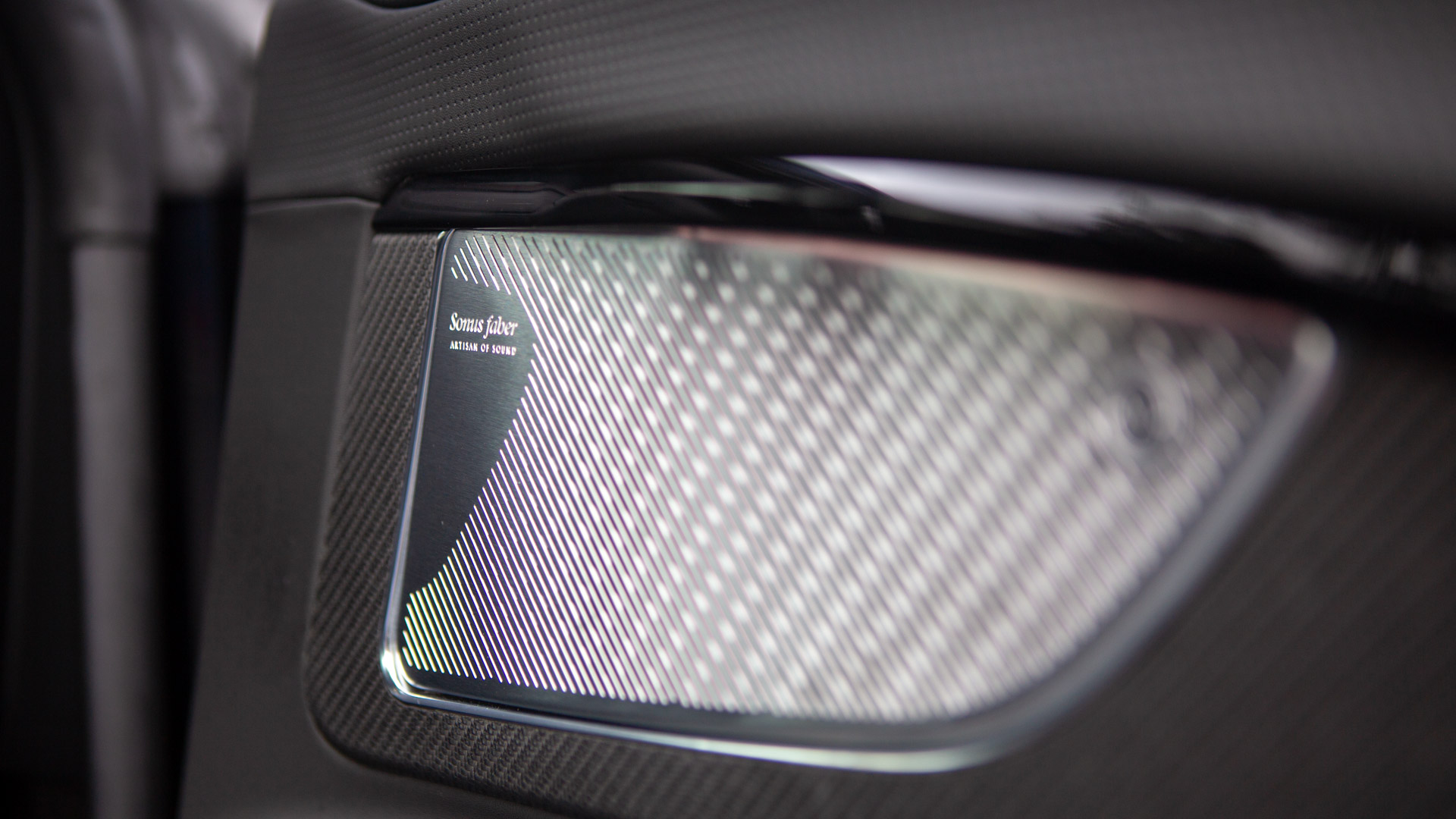
The main gear shift selector (PRND) is in a series of buttons between the two central screens, which feels a little strange. The only other cars I’ve see place these here are the Jaguar I-Pace and a few old Chrysler models. This along with the split screens in the centre console feel a bit dated and out of sync with the rest of the car – that and the plastic casing on the digital clock above it.
The OS on the infotainment system is very slick though, with options to display further gauges and dials if that’s your thing. You can also connect your phone and run Apple CarPlay or Android Auto wirelessly on the main screen.
The sound system on the GranTurismo comes courtesy of Italian audio maker, Sonus Faber. The premium option combines 19 speakers and 1195W to deliver a 3D sound system for an incredible audio experience. What struck me most about the sound was the level of separation between the individual instruments and sounds, allowing you to really feel part of the track. However, it did lack the bass range of some other premium offerings.
The ADAS packages for the GranTurismo allow for adaptive cruise control and lane management. The more advanced package ups the ante with an active driving assistant and intelligent speed assist which combine for a full Level 2 autonomous driving system, but this wasn’t installed on my test model. However, the basic adaptive cruise control is good for long journeys. The lane management tool is less useful as it just beeps at you if you start to veer over the white line rather than offer any resistance.
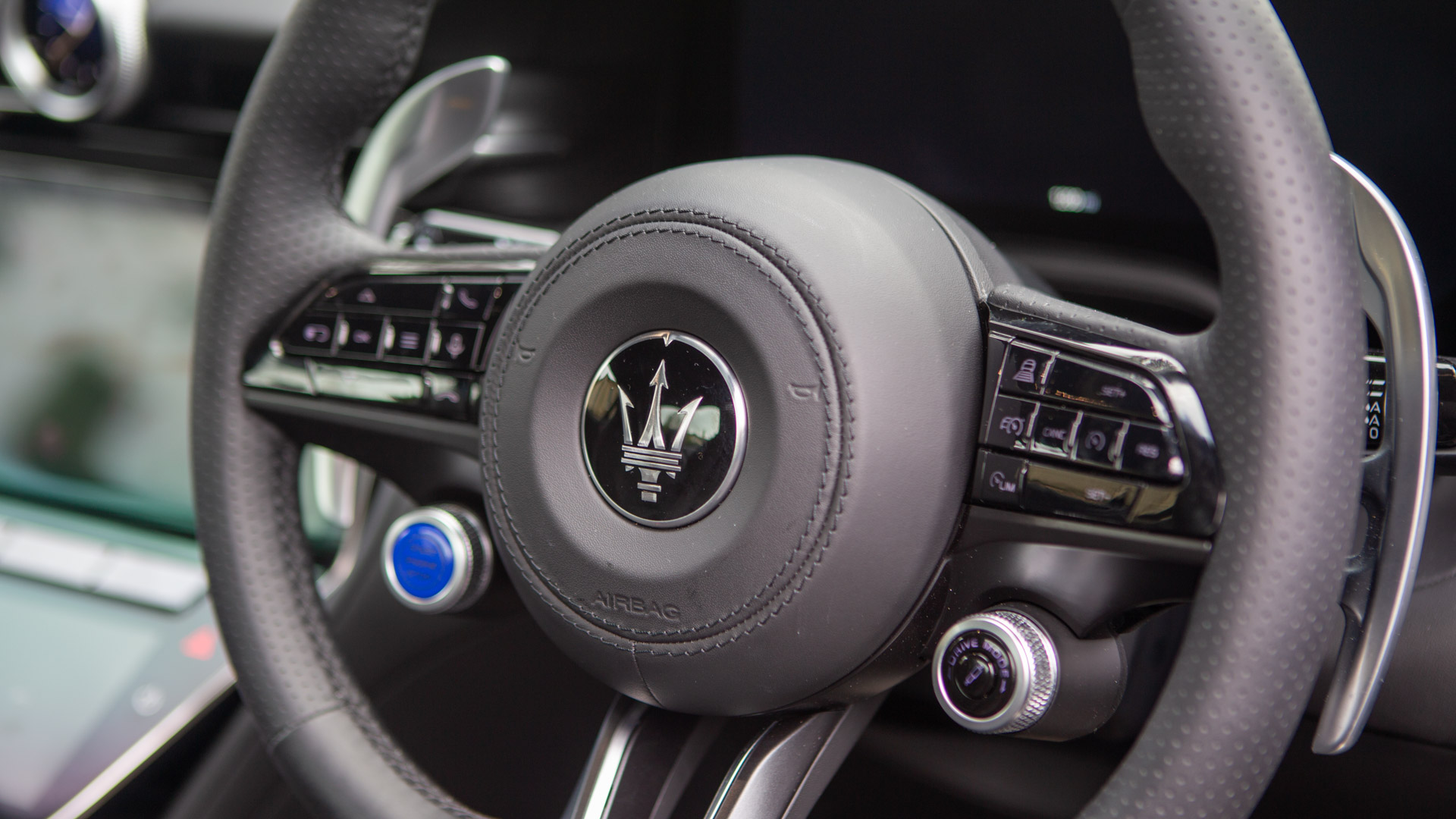
How does it drive?
- 3.0-litre twin-turbo V6 "Nettuno" engine
- 542hp, 3.5-sec 0-62mph
- Top speed 199mph
As with any GT, the GranTurismo is designed for longer journeys but it’s no slouch when it comes to pure unadulterated performance. Under that long bonnet is Maserati’s V6 3.0-litre twin turbo Nettuno engine. It’s the same engine that features in the MC20, as well as the SUV-styled Grecale, but is tuned slightly differently. In the Modena, it will deliver 483hp, while the Trofeo gets 542hp and a faster 3.5-second 0-62mph acceleration.
That power is controlled through an 8-speed automatic transmission and all-wheel drive, delivering power to the front and rear axles in varying degrees to keep the car stable. There’s also a range of drive modes on offer – selectable via a dial on the steering wheel.
There’s a comfort mode for maximum fuel economy, which you might want to use for really long journeys. The GT mode is your standard driving mode and a good all-rounder, providing comfort and a more reserved engine noise but still giving you power when you need it. Then there’s the sport mode, which tightens up the driver dynamics and suspension and gives full performance. That V6 might not quite give that classic V8 sound of old, but it’s still pretty punchy.
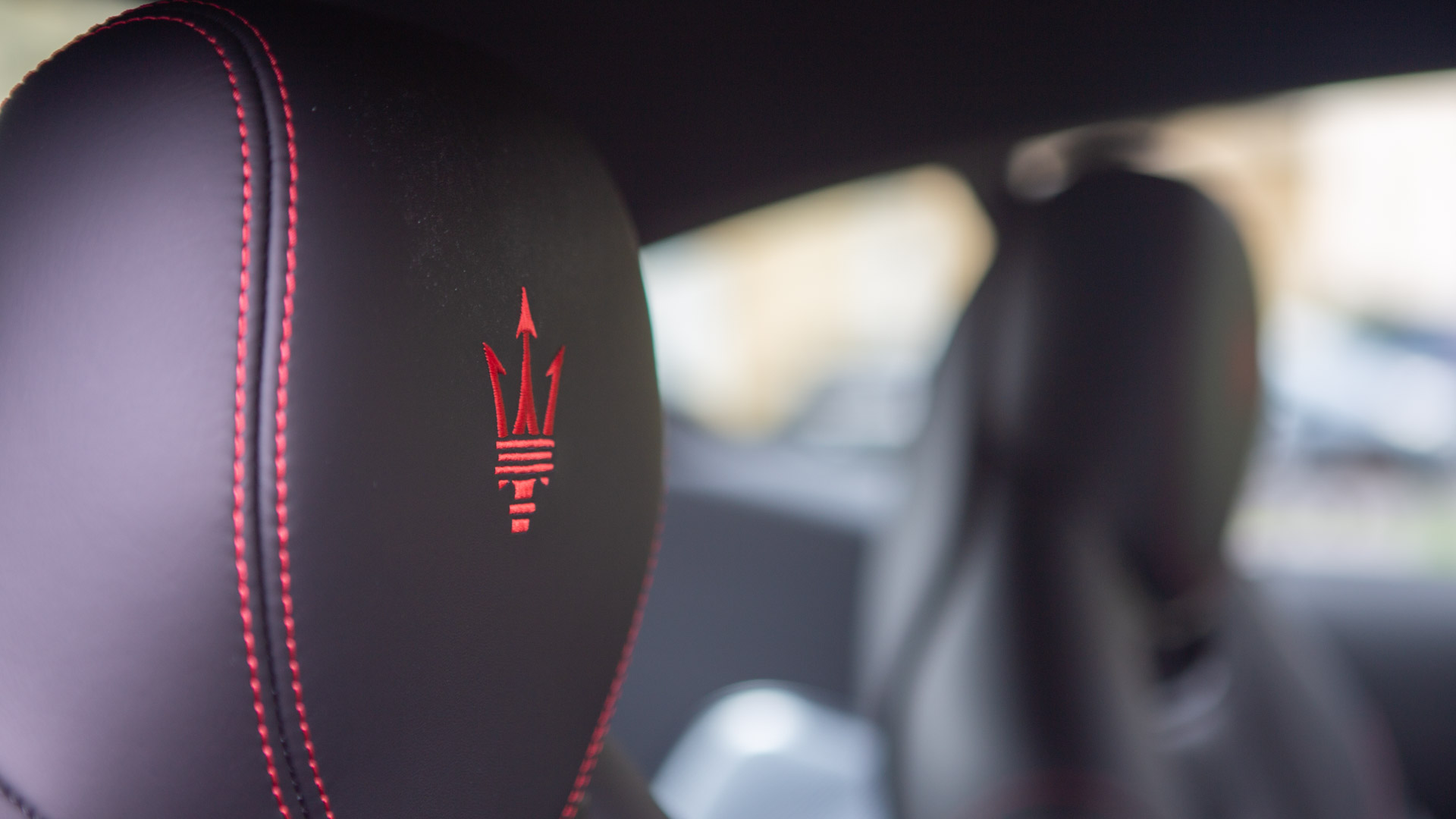
Switching to Corsa mode (Maserati's race mode) is best reserved for track use, as this lowers the car and maximises the suspension damping and response, giving you a no-holds-barred driving experience. Certainly not one for first-timers.
Needless to say, this car is a lot of fun to drive. It feels like it’s always itching to go faster – as soon as you take your foot off the brake it’s already lurching forward before you even touch the accelerator. As on motorways, it feels more tuned for the faster European limits, as the switch to aero mode (lowering the suspension) only happens at around 75mph and it feels like it wants to sit at around 80mph on motorways (I imagine).
Find a winding country road though and you can’t help but have fun in the GranTurismo. It’s not as raw or agile as a real sports car but it handles beautifully, letting you push it harder into corners without losing an inch and fire out the other side. There’s more power here than you’d ever need on public roads and you’ll be lucky to use a fraction of it, but it’s very nice to know it’s there.
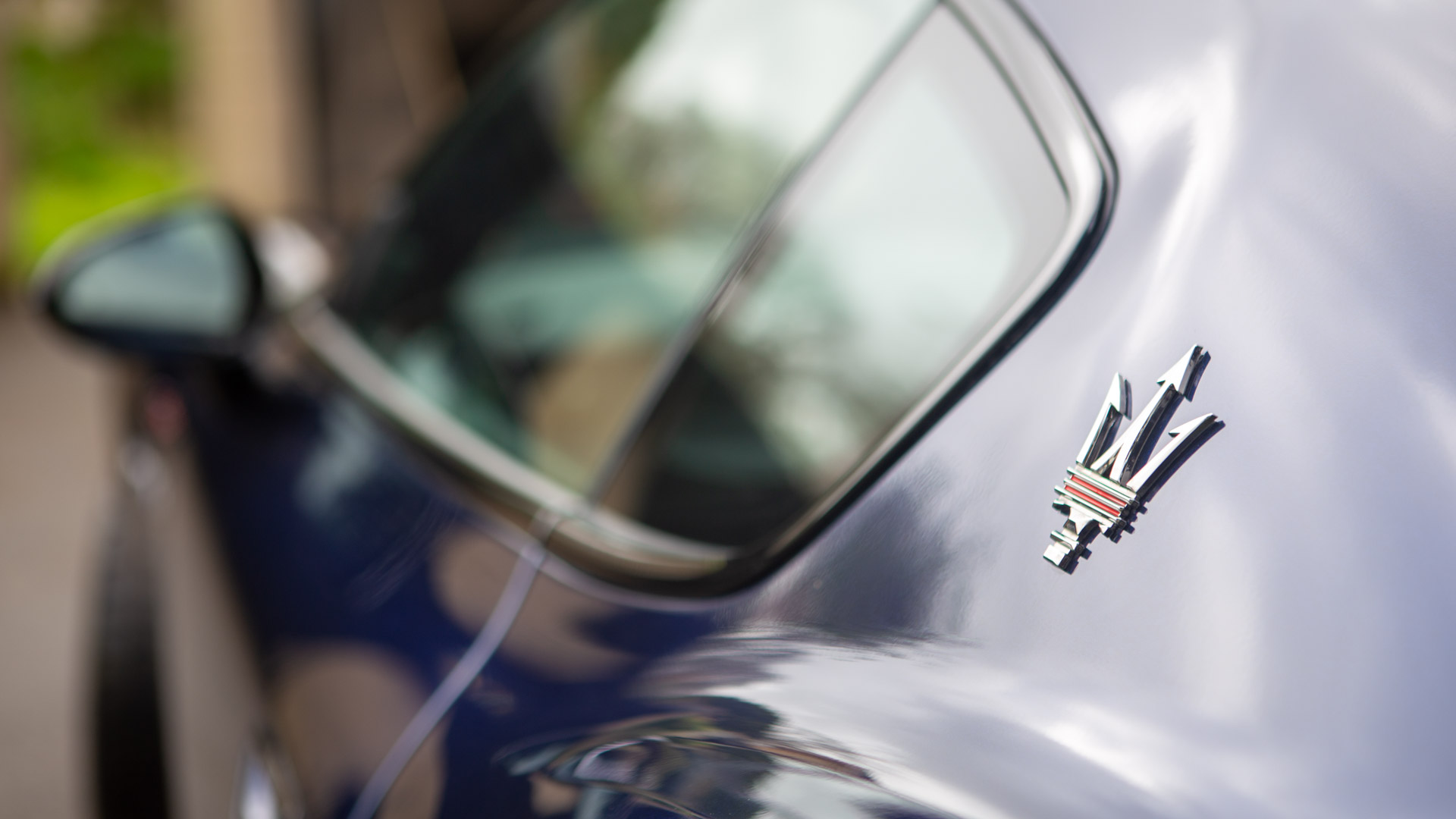
Should I buy a Maserati GranTurismo?
With a price tag of over £170k, there’s only a select group of cars that the Maserati GranTurismo Trofeo competes with. It’s cheaper than the Aston Martin DB12 and the Ferrarri Roma and arguably better looking than anything else in the category.
While I love a nimble sports car, gran tourers offer a more practical solution and I can’t imagine a much better daily driver than the Maserati GranTursimo (accept maybe the DB12). I would happily make a detour to the South of France, just as an excuse to drive this car a little longer. It really is a different class of motor and one that is now well and truly on my wishlist.
Of course it would be wrong not to mention the upcoming electric (Folgore) version of the GranTurismo, which aside from 800v from three separate electric motors, promises 750hp and a 2.7-second 0-62mph.
While the GranTurismo Trofeo is nearing petrol perfection, the Folgore promises to blindside the electric market with something transformative. A true performance electric car – provided it lives up to the spec sheet.
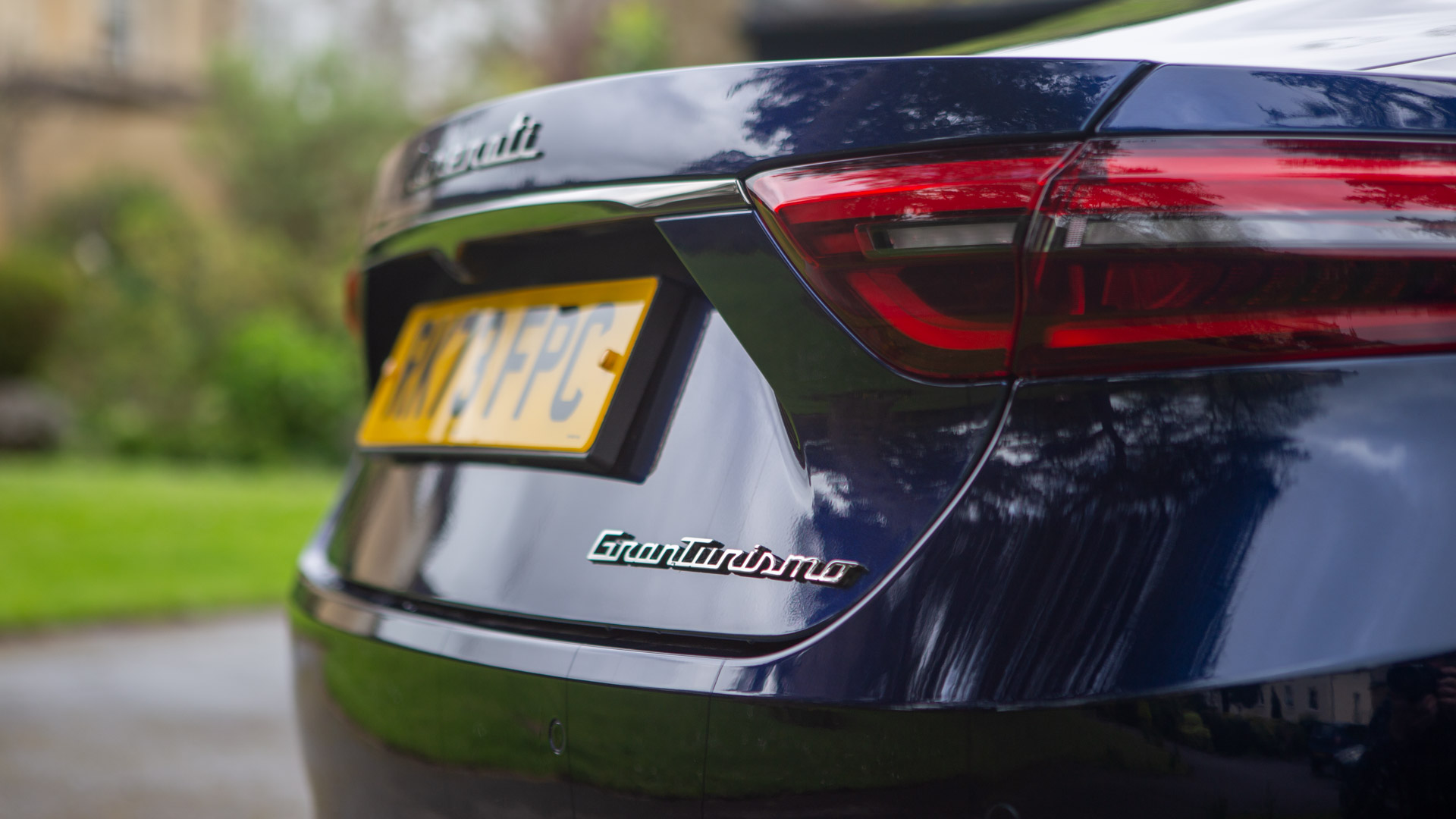

As T3's Editor-in-Chief, Mat Gallagher has his finger on the pulse for the latest advances in technology. He has written about technology since 2003 and after stints in Beijing, Hong Kong and Chicago is now based in the UK. He’s a true lover of gadgets, but especially anything that involves cameras, Apple, electric cars, musical instruments or travel.